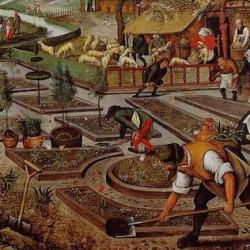Duncan Kelly argues in his lengthy TLS review of Thomas Piketty’s Capital in the Twenty-First Century that the “book is as much a story about the limits of modern democratic politics as it is about the structures of inequality.”
That is not simply about the anti-democratic role that wealth plays in contemporary democracies, though it is partly about that. Kelly writes, “inequality might be the result of political choice, but one of the obvious implications here is that modern democratic politics is so limited by the demands of market meritocracy, that there’s very little choice at all. If that’s right, inequality might just keep expanding until it is readjusted by some other momentous shock. In terms that are already threatening to become part of contemporary cultural discourse, if r>g continues into the future, what does that mean for democracy, and what in turn does it mean for inequality?”
It is not even merely about the apparently insurmountably contrast between short-term political aims and the long-term economic trends that Piketty documents. It is about that too. Kelly again: “Piketty’s data readily aligns with work in political science showing that the very affluent have distorting and disproportionate ‘representation effects’ on mainstream American politics in particular. When affluence buys influence, the pretences of modern democratic equality are jarring, but the fact that Piketty shows how r>g ‘has clearly been true throughout much of human history, right up to the eve of World War I, and it will probably be true again in the twenty-first century,’ but claims that it is also a ‘contingent historical proposition,’ is a tricky issue to parse.”
More fundamentally, it’s about a contradiction embedded within modern democracies. On the one hand, democracy celebrates meritocracy with the same enthusiasm that it rejects inherited aristocracy. On the other hand, if Piketty is right, meritocratic principles applied to economic life create a new form of aristocracy nearly as closed and separated from the rest of the world as the aristocracies of the Ancien Regime.
Piketty’s argument suggests, in short, that we cannot have meritocracy and democracy. We cannot have both our merited rewards and our equal rights. We have to choose.














